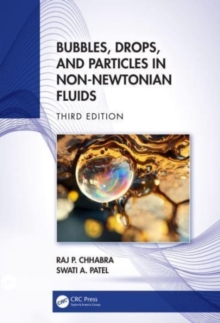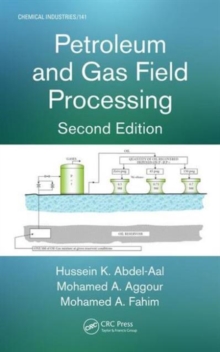
Advances in Fluid Catalytic Cracking : Testing, Characterization, and Environmental Regulations Hardback
Edited by Mario L. (MLO Consulting, Atlanta, Georgia, USA) Occelli
Part of the Chemical Industries series
Hardback
Description
Refiners’ efforts to conform to increasingly stringent laws and a preference for fuels derived from renewable sources have mandated changes in fluid cracking catalyst technology.
Advances in Fluid Catalytic Cracking: Testing, Characterization, and Environmental Regulations explores recent advances and innovations in this important component of petroleum refining technology and evaluates how the industry has been changed by environmental regulations worldwide. Measurement, testing, and improvementModern spectroscopic techniques continue to be essential to the understanding of catalyst performance and feedstock properties.
The book contains a detailed review of the use of adsorption microcalorimetry to measure acidity, acid site density, and the strength of the strongest acid sites in heterogenous catalysts.
It also discusses the use of 1H-NMR to characterize the properties of a FCCU feedstock.
In addition, the book dedicates several chapters to pilot plant testing of catalysts and nontraditional feedstocks, maximizing and improving LCO (heating oil) production and quality, and improving FCCU operations. Complying with the EPAThe EPA has identified the petroleum refining industry as a targeted enforcement area for the Clean Air Act (CAA) passed in 1970 and the CAA Amendments of 1990.
The final chapters of the book examine the evolution of the EPA’s attempts to encourage the refining industry to enter into voluntary consent decrees to comply with the CAA and the 1990 amendments.
The book describes consent decree negotiations as well as FCC emissions (SOx, NOx, CO, PM) reduction technologies through consent decree implementations. Containing contributions from a panel of worldwide experts, the book demonstrates how the global shift toward environmentalism has engineered significant changes in the petroleum refining industry at a critical level.
Information
-
Out of stock
- Format:Hardback
- Pages:408 pages, 75 Tables, black and white; 233 Illustrations, black and white
- Publisher:Taylor & Francis Inc
- Publication Date:30/11/2010
- Category:
- ISBN:9781420062540
Information
-
Out of stock
- Format:Hardback
- Pages:408 pages, 75 Tables, black and white; 233 Illustrations, black and white
- Publisher:Taylor & Francis Inc
- Publication Date:30/11/2010
- Category:
- ISBN:9781420062540










